Roundup post: Changing the way we deal with conflicts?
8 Assessments by professional conflict managers.
We asked academics, counsellors and mediators about their professional experience and research findings - and received very different results.
Once again, we turned to trained mediators, lawyers, professors and conflict counsellors. The topic of the survey this time was our Dealing with conflicts in organisations and as individuals, both socially and privately.
We asked the experts the following two questions, which they had to answer briefly and concisely:
In your experience, has the (social) handling of conflicts – in private life or in organisations – changed noticeably? If so, how?
This resulted in interesting answers that shed light on the topic in different (professional) contexts and from different perspectives. We were surprised ourselves at the diversity of opinions!
The answers are summarised in the Overall view pretty clear: nothing has changed at all, nor is „everything great“. We act in a highly differentiated and contradictory way in all contexts and fields of work, both in the concrete-individual, personal sphere of life and in abstract-general, socially relevant regulatory atmospheres, struggling for balance and differentiation at the same time and making one thing clear significantly overall: We are not indifferent to conflicts, and how we deal with them is highly significant and relevant to our personal and social happiness.
(The visual highlights are from INKOVEMA.)
- INKOVEMA Leipzig
1. Rolf Balling
Teaching trainer, supervisor, management coach and consultant for organisations, founder of Professio.

Rolf Balling, Coach
In organisations, the view that conflicts are not embarrassing and even have the potential to lead to further solutions has dominated standard communication for decades.
So you talk – and show yourself to be – consistently co-operative and conflict-constructive, including the expressed willingness to mediate.
However, this creates the risk that mediation is used as a tactical manoeuvre in the organisation's own positioning. And this in the hope of simultaneously demonstrating an exemplary willingness to cooperate and - more covertly - advancing the fulfilment of one's own bonus-relevant goals.It is therefore increasingly important for a mediator not to be dazzled by a declared willingness to co-operate, but to steer soberly and vigilantly, step by step, into the zone where a genuine dispute - with an open mind - can develop its own momentum.
2. Bertine Kessel
Managing Director, Coach, Supervisor, Teaching Trainer for Transactional Analysis
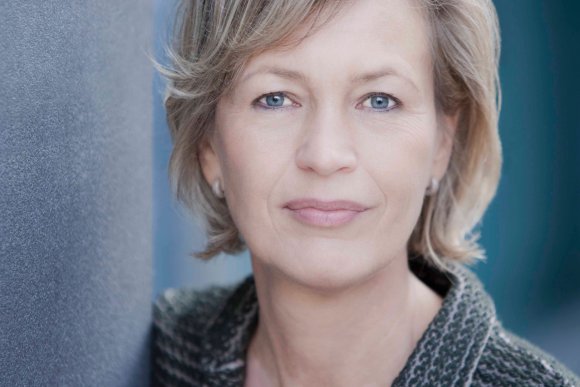
Bertine Kessel, Managing Director
No. I still experience in organisations that Conflicts arise because they are avoided. Very few people have inner images of the fact that going into conflict enables development and that things can turn out well, even when it comes to separations. People then experience humiliating demotions or separations as a complete surprise, without anyone having previously entered into conflict with them over desired changes - performance appraisals were usually good.
Apparently, decision-makers lack the courage to honestly address conflicts about changing role expectations. This makes it more difficult for those affected to come to terms with the conflict, as it becomes incomprehensible. I would like to see more courage for open conflict!
As counsellors, we can use our mental models to support the development of this courage in decision-makers. Anselm Grün also calls this courage bravery: putting people through difficult things and being able to look them in the eye during or afterwards.
3. Jutta Kreyenberg
Psychologist, teaching trainer for transactional analysis, author of specialised books

Jutta Kreyenberg, Coach
On the one hand, it is expected that more agile roles will lead to fewer hierarchical conflicts, but on the other hand, the demands of fast-moving times are becoming ever greater and managers have less time. Conflicts then often become entrenched, are not resolved and continue to smoulder.
On the other hand, new opportunities often arise when departments are restructured – I often experience that companies also prevent conflicts right from the start with team building, clarify roles, managers are trained much more constructively and cooperation-orientated than before.
4. Prof Dr Caroline Meller-Hannich
Legal scholar, Professor of Civil Law, Civil Procedure and Commercial Law at Martin Luther University Halle-Wittenberg!
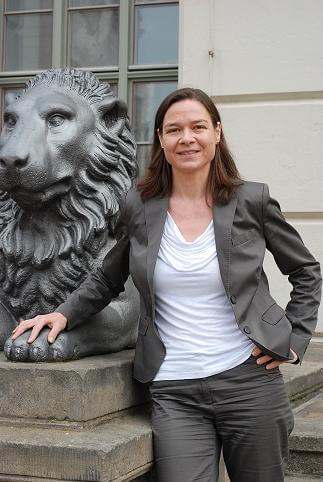
Caroline Meller-Hannich, Professor of Civil Law
Arbitration and various forms of alternative dispute resolution are increasingly taking their place alongside dispute resolution in the state justice system. However, there are also various customer complaint management systems and peer-to-peer rating systems, for example in online retail.
The state judiciary and also arbitration offer a conflict decision based on the law and a relatively narrow subject matter of the dispute by recognising which party to the conflict is in the right.
The various Alternative dispute resolution procedures at least provide a procedure for conflict resolution that is organised according to certain aspects of law and fairness.
At the Complaints managementand the evaluation systems it is usually no longer a question of who gets justice and how.
Conflicts can of course be "resolved" not only by law, but also by money, goodwill, according to the rules of (economic) superiority or by magnifying the conflict to the interests of the parties involved.
The aim should be to find a way of dealing with conflicts that is appropriate to the specific individual conflict. The state justice system should not accept foreign forms of conflict resolution to compensate for its own weaknesses, but should instead face up to competition and regain acceptance through greater specialisation, proximity to citizens and modern communication. Of course, conflict resolution through law and order is a good thing for a constitutional state.
5. Tilman Metzger
Licensed mediator and trainer (BM®), founding member of the Federal Mediation Association

Tilman Metzger, Mediator
Yes, also on a social level. The similarity between 1933 and 2017 is that there are numerous (would-be) autocrats. The difference is that in many places today there is a contentious, democratic civic culture.
6. Günther Mohr
Psychologist, economist, coach and organisational consultant, teaching trainer for transactional analysis, author of specialist books
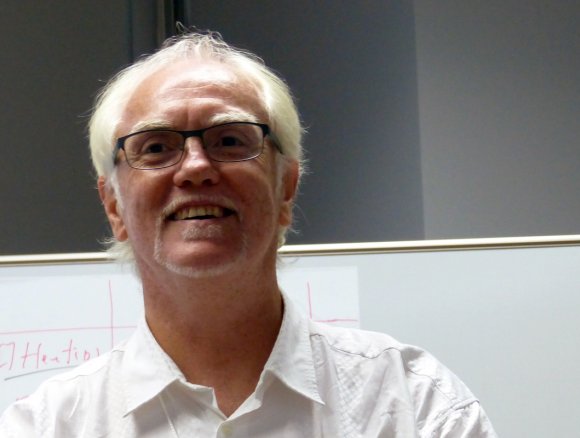
Günther Mohr, Coach
So the way we deal with conflicts has changed in westernised culture to the extent that the Expectations of political correctness are widespread and so openly conflictual behaviour is usually frowned upon. I'm not entirely clear about the effects, because the emotions that are triggered by external situations and people's internal judgements are still there. Perhaps it flows into more sublime forms of external conflict or also into internal discrepancies, which are reflected in the high burn-out rate, for example. The Trend towards internalisation of conflicts is also supported by the mental change that the individual is responsible and is increasingly expected to be a self-optimiser.
The Populismwith its re-externalisation of the conflict boundary In this context, the shift from one's own person to other groups (migrants, people of other faiths, politicians, the press, …) is an interesting, but unfortunately also seductive solution for many. However, it is a defence against the fact that conflicts usually have an unresolved internal psychological side.
7. Bernd Schmid
Educational scientist, winner of the Eric Berne Memorial Prize (2007), Life Achievement Award of the continuing education industry (2014).
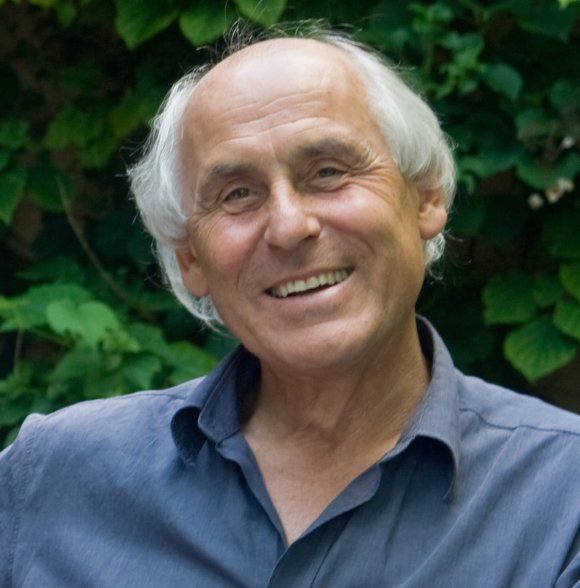
Bernd Schmid, founder of isb-Wiesloch
Oh dear, how are we supposed to distinguish changes in our own reality bubble from sociologically relevant ones? After years of investing in fields and relationships, we live both privately and professionally in established circumstances and proven relationships. What has changed, both in organisations and in our private lives, is that we Approach things with caution and only use it after gradual probation.
Also When conflicts arise, we keep our cool and don't allow them to gain uncontrolled attention. It's better to leave something or accept something than to jump in and clarify everything. But we have also become more selective when it comes to significant others. Where the fit is too difficult, we avoid further collaboration, preferring to use our energy where something valuable can be achieved in the long term. If conflicts can be resolved constructively with a reasonable amount of effort, that's fine. We also overcome inertia and cowardice in front of our partner. If not, just take the energy out and make that clear with all due respect.
8. Prof Dr Reimund Schmidt-De Caluwe
Legal scholar, Professor of Public Law and Social Law at Martin Luther University Halle-Wittenberg. Also a Precise observer of everyday situations.
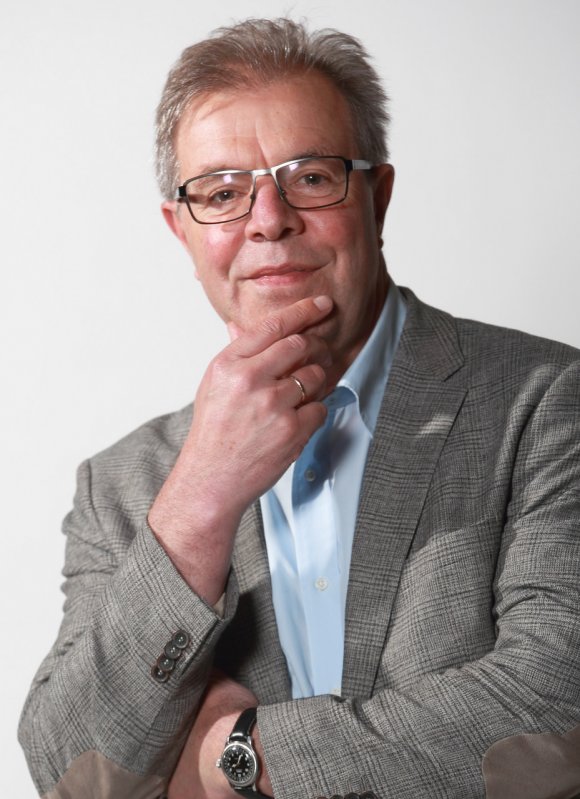
Reimund Schmidt-De Caluwe, Professor of Public Law and Social Law
If we look at the last 2 or 3 decades, I think we can recognise some changes in the way conflicts are dealt with. On the one hand traditional hierarchies are no longer accepted as a matter of course. This applies both within family structures and with regard to larger organisational units, including the relationship between the individual and the state and its administration.
Particularly in the area of social law, for example, people are increasingly recognising and demanding their own rights as such. In dealings with the administration, there is also a growing demand for participation in important individual or social decisions. Here a new customisedand, building on this, the self-image of civil society to develop.
The law reacts ambivalently to this development. On the one hand, it recognises it by using participation rights to open up decision-making procedures to citizens' interests, such as in the environmental and infrastructure sectors. On the other hand, it is defensive in that fixed legal positions of the individual are transformed into discretionary powers of the administration, e.g. in the „Hartz 4“ area.
But the law is only one of the framework conditions for conflict resolution. Insofar as it leaves room for manoeuvre, as is usually the case, it is important to find a Culture of conflict resolution with self-confident and informed actors to strive for. Despite all the prophecies of doom, I believe our society is on the right track.
Many thanks to the participating scientists, counsellors and mediators!
What do you, dear readers, think about dealing with conflicts? Do you share the optimism that was largely expressed in the responses?
If you liked the article, we would be delighted if you would share it with friends and acquaintances and leave a review. Thank you very much!
The INKOVEMA team.
On our own behalf:

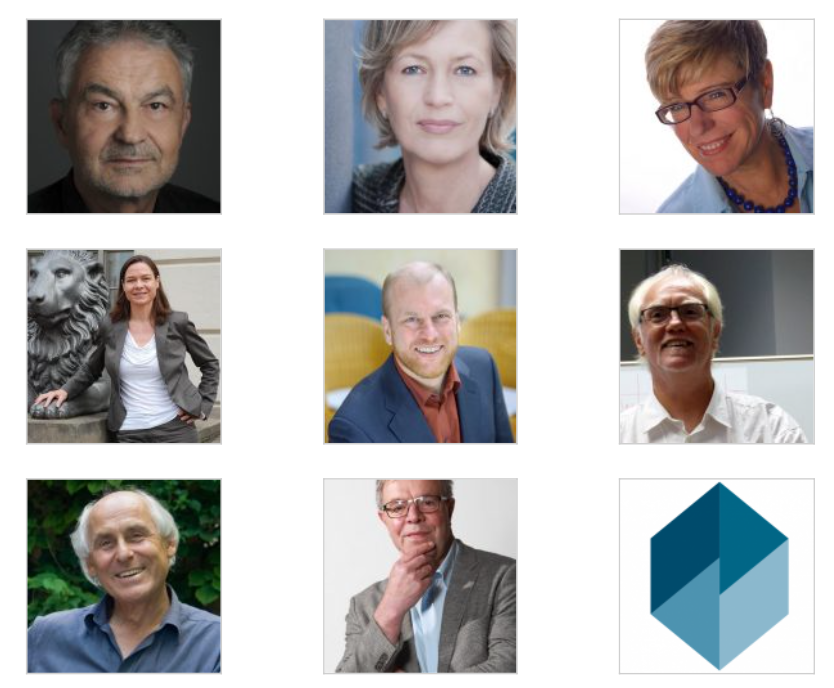










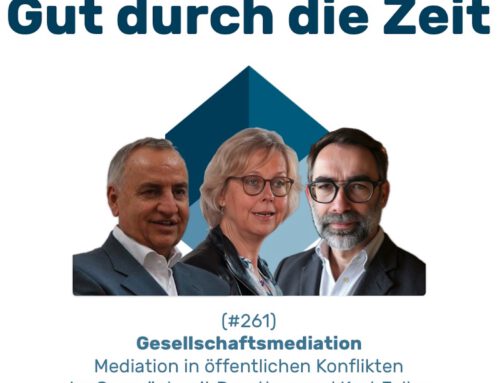


I share this optimism in my private life. Professionally, the desire for the courage to engage in open conflict applies.
I share some of the optimism, but not all of it.
In my professional environment, I have noticed that the cooperative idea seems to be increasingly prevailing over the competitive one (to put it mildly), although there still seems to be a great deal of shyness, not to say fear, standing in the way of its breakthrough. We seem to have internalised too deeply that conflicts „have to be won“ rather than resolved. That under no circumstances should we emerge from a conflict as inferior, weak or defeated. And concessions seem to weaken us. Because they make the defences that we have built from our positions permeable. And therefore vulnerable. We have the task of creating trust in the processes and methods, but above all in the conflict competences of those involved, which undoubtedly lie dormant in the vast majority of us.
What fills me with concern is the tone and the way differences of opinion are dealt with, as can be observed in the so-called social networks. I console myself with the thought that we behave in the same way as we are used to in the (supposed) anonymity of road traffic. The problem is that the people I'm talking to can't hear me swearing and shouting in the car. Thank goodness, I think to myself. It's different on the net. Here, our behaviour towards each other can be read by everyone. And my hope is that we will be put off by what we often have to read there – and not become blunted and it will not gradually become our role model.
Cordially
Philip Gass
Thank you for these insights, which seem quite plausible to me. The first part of your comment on the tension between cooperative and competitive approaches was particularly illuminating. It seems to me - especially in an economic context - that a competitive approach is being used less and less because the costs are simply too high: Another customer or business partner is lost or lost, the problems persist and if the „battle has been won“, this is by no means seen as ensuring one's own economic survival. Even if no direct causalities may exist or can be generalised: Co-operation, network orientation and smart investment are simply more productive in the medium and long term. The current problems cannot be solved by working against each other, but require a diversity of perspectives. If you need a good idea, you need lots of ideas! For conflict management, this means above all the ability to engage in dialogue instead of discussion, to exchange ideas instead of verbally lashing out, to be willing to be influenced rather than to educate others.